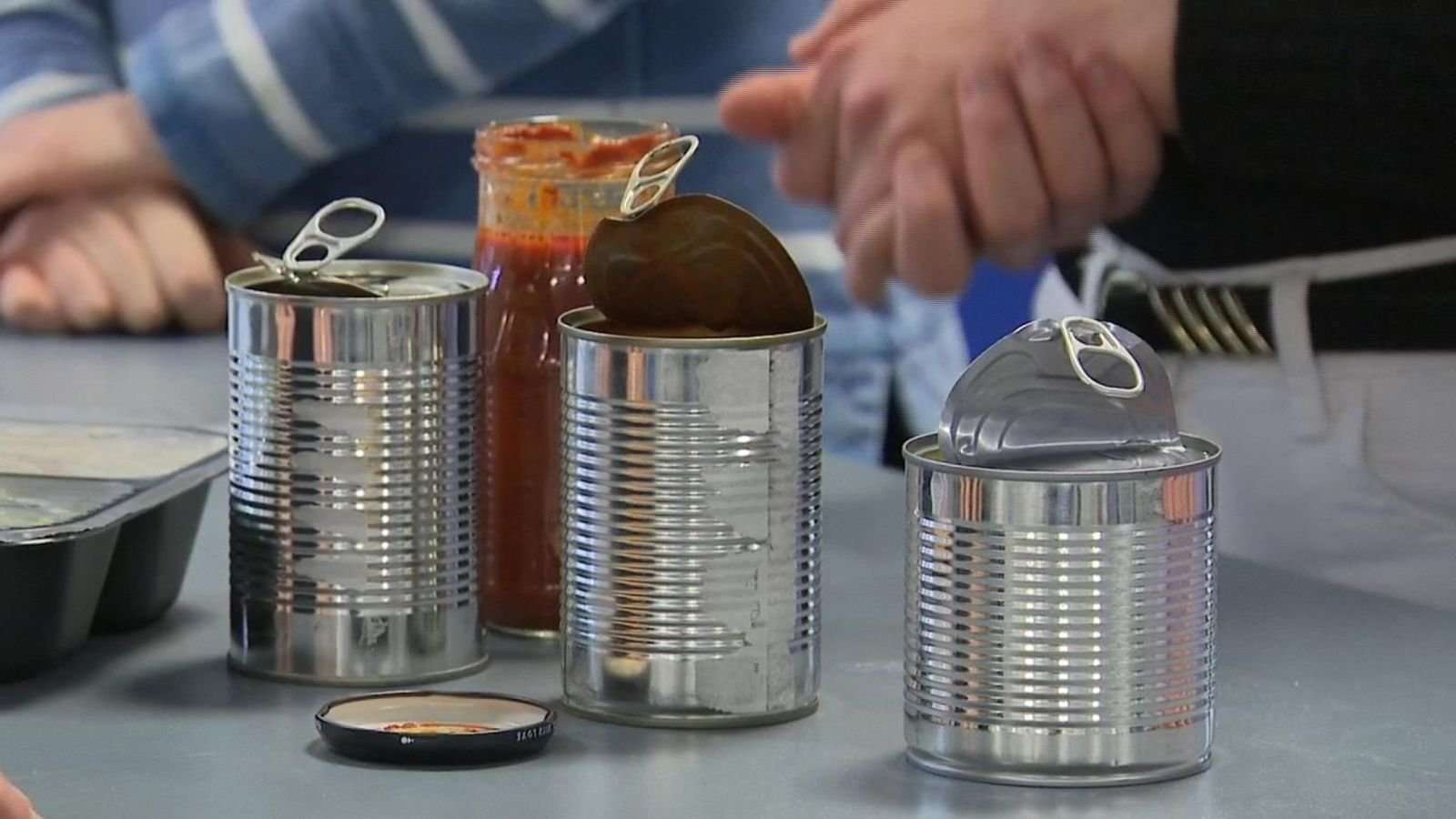A potentially hazardous chemical used in certain plastic food packaging has been found in the digestive system of 86% of teenagers who took part in a recent study.
The University of Exeter research looked at Bisphenol A (BPA), which makes plastics flexible but strong.
Some studies have suggested that the chemical could be linked to breast cancer and heart disease and there have been calls for it to be banned. However, others believe that stance is misleading.
BPA, which has been used since the 1960s, is often found in the white lining inside tinned foods, drinks cans and bottle tops. Even till receipts, DVDs and processed foods are known to contain it.
Researchers studied 94 teenagers and found it was almost impossible for them to avoid BPA products.
Image: The chemical is also found in some plastic food packaging
Professor Lorna Harries, who led the project, is calling for clearer labelling on packaging so people can make informed choices when doing their food shopping.
"Teenagers are one of the groups of people in our population that have the highest levels of BPA in their urine when you measure it," she said.
"Although we’re not quite sure why that is, one theory is because teenagers eat more junk food than the rest of the population and junk food is a particularly rich source of BPA."
Freya Hester, 17, who took part in the study, said: "I am really passionate about plastic pollution so knowing BPA is in here, we are polluting our bodies as well as the environment, which is really shocking to me."
Another participant, Amalia Gimbuta, told Sky News: "If you're in a rush and you're shopping you don't have time to peel off the packaging to try and work out if it has BPA or not.
"So finding packaging that you know for certain doesn't have it in is really difficult."
Image: Researchers found BPA in most of the 96 people they tested
Whilst some research suggests that low levels of BPA do not do any harm, the European Commission recently ruled it was a threat to human health because of its effect on people's hormones.
In Canada and some American states it is no longer used in baby bottles, and last month the Commission decided to restrict its use in food packaging because of the potential side effects.
Chief Executive of Breast Cancer UK Lynn Ladbrook said: "BPA is listed as a substance of very high concern for good reason - it is both a reproductive toxicant and has endocrine disrupting properties.
"Breast Cancer UK has long called for BPA to be prohibited from use in food, drinks and till receipts and until it is, it is likely to continue to show up in humans."
However, some insist the chemical is safe and that there is not enough clear evidence to suggest otherwise.
The British Plastics Federation has sought to reassure the public, calling recent campaigns misleading.
In a statement, it said: "BPA is one of the most studied chemicals in recent history and the current safety measures were reaffirmed as safe for adults, children and unborn children by the European Food Standards Agency (EFSA) as recently as October 2016, and the UK Food Standards Agency officially supports these conclusions.
"The British Plastics Federation also supports these conclusions: at current exposure levels, plastics containing BPA pose no health risk for any age group."

fernguts on February 4th, 2018 at 13:48 UTC »
BPA still shows up in blood samples of 90% of Canadians, despite having been officially declared toxic seven years ago, and banned from being used for bottles.
nadmaximus on February 4th, 2018 at 11:51 UTC »
That's it, I've eaten my last teenager. It's just not safe anymore.
shitheadsean2 on February 4th, 2018 at 02:32 UTC »
I never even thought of BPA being in wrappers, just in bottles and stuff